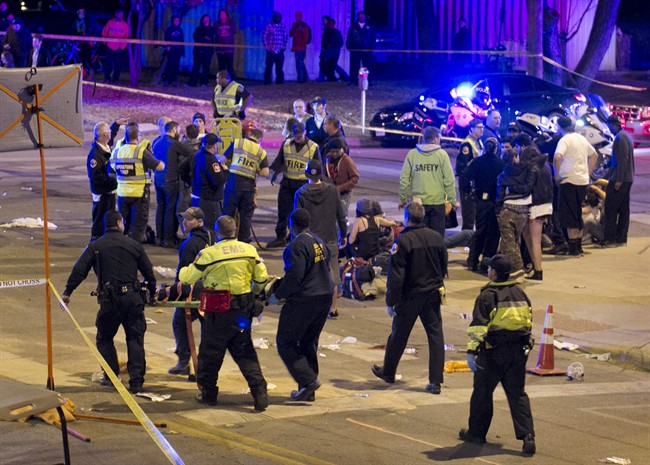TORONTO – Amid a growing number of first responder suicides, and as more and more of their colleagues come forward about their struggle with post-traumatic stress disorder, the Ontario government is holding a summit to discuss what to do.

Roméo Dallaire will give the keynote address at a summit next month exploring post-traumatic stress disorder, traumatic mental stress and mental health issues faced by first responders in Ontario.
The March 5 summit was borne out of a report commissioned by the Ontario government in 2012 and released in October 2014, but only requires participants to share best practices – it doesn’t commit the province to any changes or action as a result.
That isn’t good enough for Vince Savoia, the executive director of the Team Conter Memorial Trust.
“We definitely need that presumptive legislation to be put into place,” Savoia said. “We need funding for mental health support within emergency services organizations, we need funding to train our colleagues in emergency crisis intervention and applied suicide intervention.”
READ MORE: 16×9 looks at the the PTSD crisis among Canada’s first responders
The legislation he’s talking about was put forward by NDP MPP Cheri DiNovo and would lessen the burden on first responders to prove their PTSD diagnosis was a result of their work in order to get WSIB benefits. That bill recently passed second reading with all-party support and will soon go to committee for debate.
Paul Atkinson, a worker’s compensation advocate with the Toronto Professional Firefighters Association says the summit is a good step but also wants concrete action, which he says, he’s already fighting for.
“We work with our government, we work with WSIB, the ministry of labour to advance these issues forward to the point where perhaps we get a presumption for Post-traumatic stress for the emergency frontline workers so that we don’t have to re-traumatize these people in order to get them benefits,” he said.
Atkinson and Savoia both increased funding for pre-emptive training, crisis intervention and peer support programs.
The October report makes 14 recommendations – most of which Savoia supports and has been supporting vocally – about how the government and first responder organizations can combat mental health issues in their fields.
Chief among those recommendations are ways to change the culture within the various institutions. First responders who suffer from PTSD say their colleagues need to be open to talking about mental health issues.
“Changing workplace culture is largely about removing stigma,” the report reads. “Changing attitudes cannot be achieved without ensuring proper supports are in place.”
The report also talks about the need to “realistically” advertise jobs to recruits and the need to fix a bureaucracy too inflexible to deal with mental illness. The report raises concerns about “the lack of a unified coordinated and automatic response following a traumatic event in the workplace.”
Five first responders have killed themselves since New Year’s, according to the Tema Conter Memorial Trust; 35 since April 29, 2014.
“We’ve had 35 first responder’s suicides in nine months and yet we have not heard from any level of government about their concern about these suicides,” Savoia said.
READ MORE: How to get help if you or someone you know has PTSD
The one-day summit will bring together approximately 150 representatives from policing, fire services, emergency medical services, correctional staff, health care, transit and social services.
“We have a responsibility to safeguard the psychological health and safety of people whose jobs put them at risk of developing traumatic mental stress injuries,” Ontario Labour Minister Kevin Flynn said in a press release.
The 150 representatives won’t be tasked with recommending anything and will instead be sharing best practices.
If you, a family member or someone you know is having suicidal thoughts, or you believe they may be suffering from severe depression and/or anxiety, there are many organizations available to help including the Canadian Association for Suicide Prevention. A lengthy list can be found here.


Comments